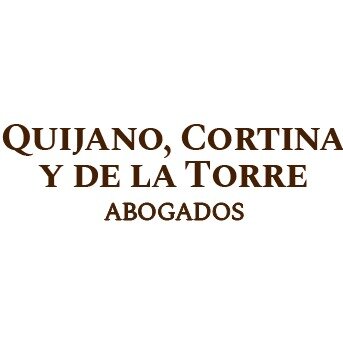Best Energy, Environment & ESG Lawyers in Mexico City
Share your needs with us, get contacted by law firms.
Free. Takes 2 min.
List of the best lawyers in Mexico City, Mexico
About Energy, Environment & ESG Law in Mexico City, Mexico
Energy, Environment, and ESG (Environmental, Social, and Governance) law in Mexico City is an evolving field that addresses the city’s commitment to sustainable development, clean energy, and responsible corporate conduct. With its dense population and status as Mexico’s economic powerhouse, Mexico City faces unique environmental and regulatory challenges. These include urban pollution, natural resource management, waste disposal, sustainable urban development, and facilitating the transition to renewable energy sources. Compliance with national and local regulations, as well as international ESG standards, is increasingly important for companies and individuals operating in the region.
Why You May Need a Lawyer
Seeking legal guidance in the field of Energy, Environment, and ESG in Mexico City can be crucial for several reasons. If you are a business owner, investor, developer, environmental activist, property manager, or individual facing environmental matters, a lawyer can help you:
- Navigate complex federal, state, and local environmental regulations
- Ensure compliance with permits and licensing so that your operations or projects are legally sound
- Respond to regulatory investigations or enforcement actions from environmental authorities
- Understand your rights and obligations when acquiring land or starting a business, especially in industries impacted by environmental and energy regulations
- Resolve disputes related to environmental damage, water use, waste management, or contamination
- Implement Corporate Social Responsibility (CSR) and ESG reporting frameworks, particularly for publicly listed and large companies
- Participate in public consultations or challenge development projects that may affect the environment
Local Laws Overview
Mexico City is subject to a combination of federal, state, and city-specific regulations related to energy, environment, and ESG issues.
Key laws and regulations include:
- General Law of Ecological Balance and Environmental Protection (LGEEPA): This federal law establishes the overarching framework for environmental protection, pollution control, and sustainable development.
- Mexico City Environmental Law: This local law regulates the prevention and control of air, water, and soil pollution, protection of natural areas, and environmental impact assessment procedures within the city limits.
- General Law on Climate Change: Sets out Mexico’s commitments to climate change mitigation and adaptation measures, requiring cities like Mexico City to adopt local climate policies.
- Energy Transition Law and Electricity Industry Law: Guide the development and regulation of renewable energy sources, including requirements for clean energy supply and greenhouse gas reduction.
- Solid Waste Law of Mexico City: Focuses on the reduction, segregation, recycling, and management of solid waste generated in the urban area.
- ESG Regulations and Corporate Governance: While there are no comprehensive, binding ESG laws, Mexican Stock Exchange listing rules, and market best practices encourage companies to disclose ESG-related information, and certain sectors have specific reporting requirements.
Frequently Asked Questions
What is ESG, and does it apply to my business in Mexico City?
ESG refers to Environmental, Social, and Governance factors that investors and regulators use to assess a company’s performance and risk exposure. If your business is publicly traded, operates in high-impact sectors, or seeks investment, ESG practices and disclosures can be crucial for compliance and competitiveness.
Does Mexico City require environmental impact assessments for new projects?
Yes, most new developments or activities that may significantly impact the environment must undergo an environmental impact assessment and obtain prior authorization from the local Ministry of the Environment.
How is renewable energy regulated in Mexico City?
Renewable energy projects are subject to both federal and local rules. Permits and compliance with Mexico City’s climate strategies are required, especially for distributed energy (like solar) and larger installations.
What are the penalties for violating environmental regulations in Mexico City?
Penalties can include fines, temporary or permanent closure of facilities, remediation orders, and even criminal liability in cases of severe environmental harm.
Can citizens or NGOs challenge environmentally harmful projects?
Yes, Mexican law allows individuals and organizations to participate in public consultations, submit comments, and challenge permits or authorizations through administrative or judicial processes.
Is ESG reporting mandatory for all companies?
No, ESG reporting is mandatory mainly for public companies listed on the Mexican Stock Exchange, but it is increasingly expected as a market practice, especially for larger and international-facing businesses.
Who is responsible for enforcing environmental laws in Mexico City?
The Ministry of the Environment of Mexico City (SEDEMA) enforces most local environmental laws. Federal agencies like PROFEPA and CONAGUA can also intervene, depending on the case.
Can foreign companies own renewable energy projects in Mexico City?
Yes, but they must comply with local and federal regulations concerning ownership, operation, and interconnection to the national grid.
What steps should I take if my property is affected by pollution?
You should consult a lawyer to evaluate the harm, determine the responsible party, and identify the best course of action, which might include filing a complaint with environmental authorities or pursuing civil remedies.
How can I make sure my business is compliant with both energy and ESG regulations?
Regular legal audits, ESG assessments, and staying informed of regulatory changes are recommended. A specialized lawyer can design and implement compliance programs tailored to your business activities.
Additional Resources
If you need more information or support, consider consulting the following organizations and authorities:
- Mexico City Ministry of the Environment (SEDEMA): Oversees local environmental policies, permits, and enforcement.
- Federal Ministry of Environment and Natural Resources (SEMARNAT): Manages federal environmental policy and project permitting.
- Federal Attorney for Environmental Protection (PROFEPA): Handles complaints and enforcement actions at the national level.
- National Water Commission (CONAGUA): Regulates water use, pollution, and conservation.
- Mexican Institute for Competitiveness (IMCO) and the Mexican Stock Exchange (BMV): Provide ESG guides, frameworks, and resources for businesses.
- Environmental NGOs: Amnesty International Mexico, Greenpeace Mexico, and local civic organizations provide advocacy and legal resources.
Next Steps
If you need legal assistance with an energy, environmental, or ESG matter in Mexico City:
- Gather documentation about your issue or project, including permits, contracts, and communications with authorities.
- Contact a lawyer specializing in energy, environment, or ESG law for an initial consultation. Many firms offer free or low-cost consultations.
- Prepare a list of your goals, concerns, and any questions for your lawyer to make the meeting productive.
- Stay informed about regulatory changes by subscribing to alerts from relevant governmental bodies or trade associations.
- If you believe your rights are being violated or that you have caused or suffered environmental harm, act promptly, as legal deadlines can be short.
Lawzana helps you find the best lawyers and law firms in Mexico City through a curated and pre-screened list of qualified legal professionals. Our platform offers rankings and detailed profiles of attorneys and law firms, allowing you to compare based on practice areas, including Energy, Environment & ESG, experience, and client feedback.
Each profile includes a description of the firm's areas of practice, client reviews, team members and partners, year of establishment, spoken languages, office locations, contact information, social media presence, and any published articles or resources. Most firms on our platform speak English and are experienced in both local and international legal matters.
Get a quote from top-rated law firms in Mexico City, Mexico — quickly, securely, and without unnecessary hassle.
Disclaimer:
The information provided on this page is for general informational purposes only and does not constitute legal advice. While we strive to ensure the accuracy and relevance of the content, legal information may change over time, and interpretations of the law can vary. You should always consult with a qualified legal professional for advice specific to your situation.
We disclaim all liability for actions taken or not taken based on the content of this page. If you believe any information is incorrect or outdated, please contact us, and we will review and update it where appropriate.
Browse energy, environment & esg law firms by service in Mexico City, Mexico
Mexico City, Mexico Attorneys in related practice areas.

















